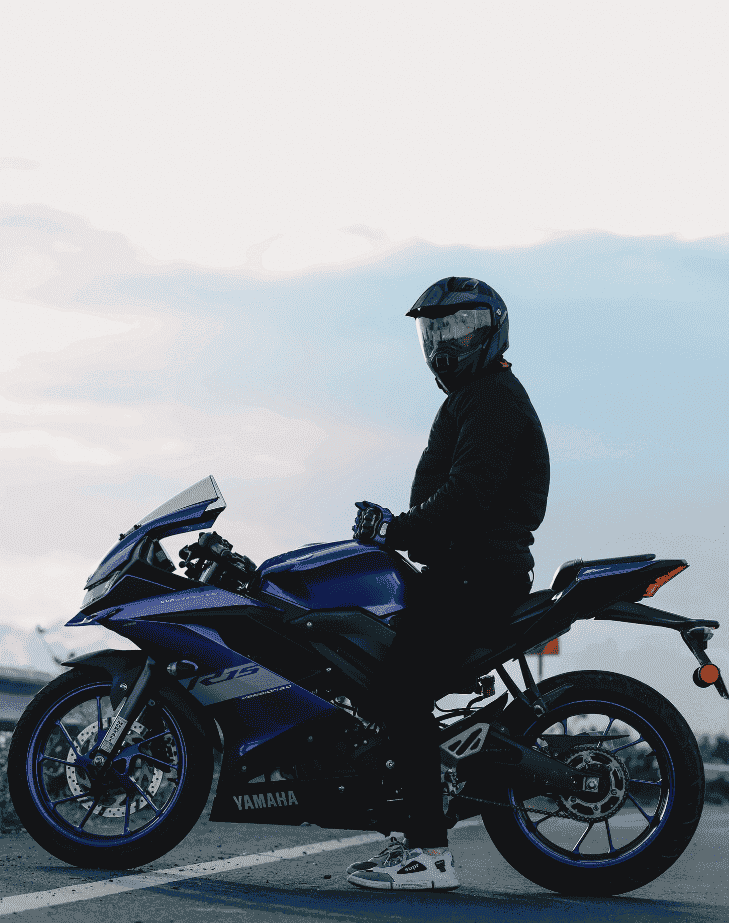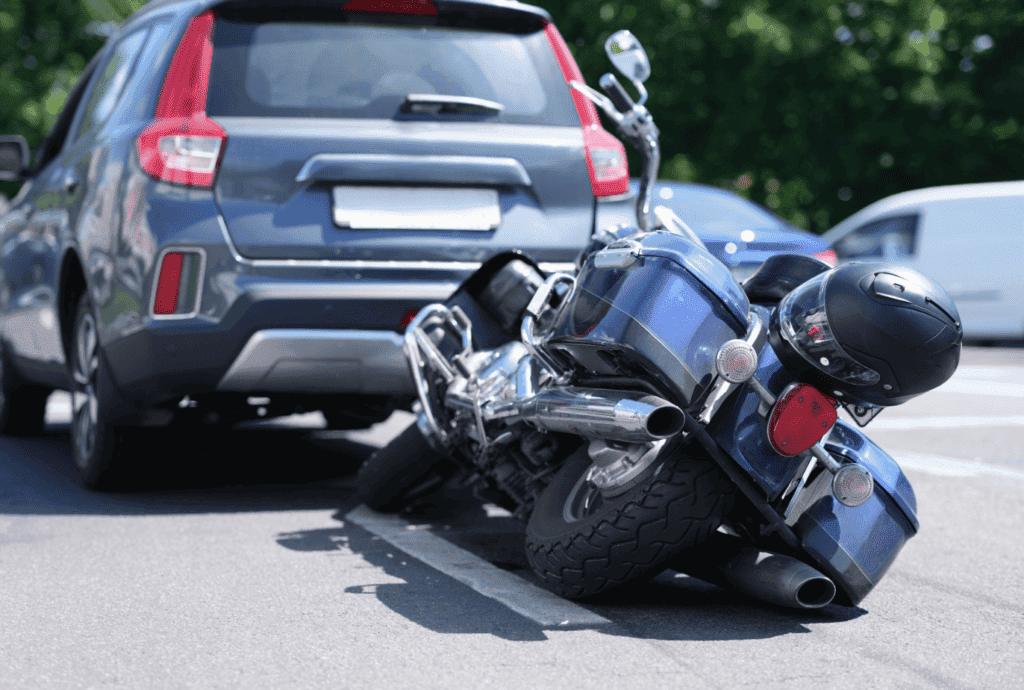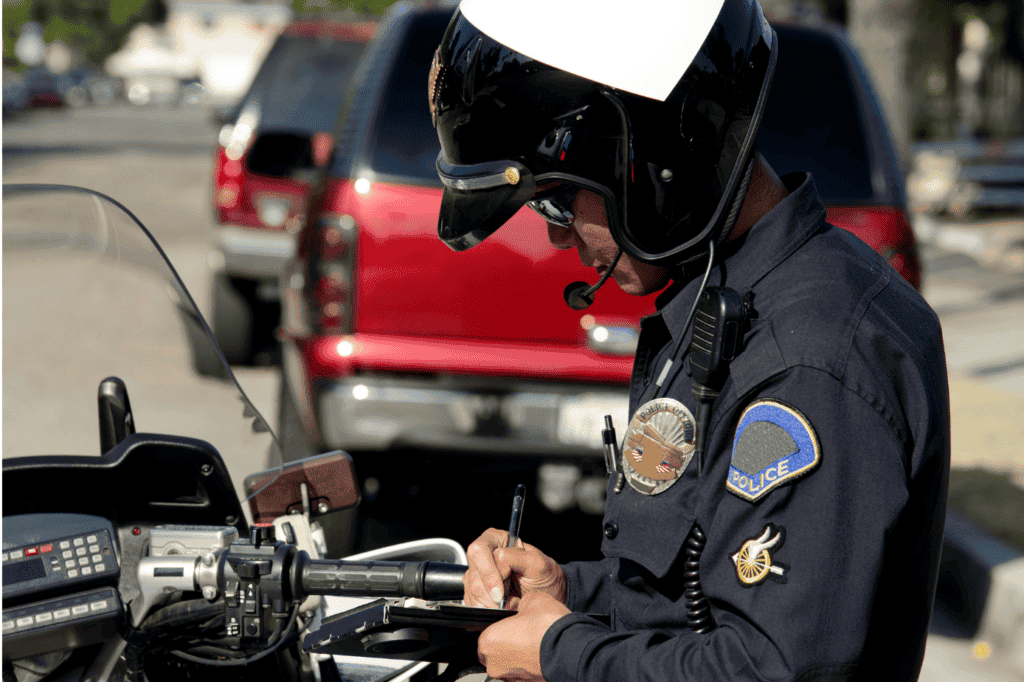
If you’re a motorcycle enthusiast, you’ve probably been presented the opportunity to ride someone else’s motorcycle. Maybe a friend just bought a cool new motorcycle or you want to help troubleshoot an issue on a family member’s bike, you may wonder if it’s legal to take someone else motorcycle out for a stroll.
Can you ride someone else’s motorcycle? You can ride someone else’s motorcycle provided you have permission from the owner, the proper license, and are old enough. There are some extreme cases you can legally take a motorcycle without permission, but this is a case-by-case basis and your reasoning must be extremely valid (needed for your own safety or the safety of others) or else you may be charged with theft.
For the reasons we have mentioned and many more, you may want or need to ride someone else’s motorcycle. There are certain things you will need to make sure of to ensure that riding someone else’s motorcycle is legal. You don’t want to get a ticket for riding illegally or even worse, get arrested for theft. We’ll walk you through what you can do to legally ride someone else’s motorcycle.
When You Can Ride Someone Else’s Motorcycle Legally
So when can you ride someone else’s motorcycle? In most cases, the first thing that you will need is permission from the owner to ride their motorcycle. Keep in mind that even with permission, that doesn’t necessarily mean that you can legally ride the motorcycle. To ride a motorcycle requires a motorcycle license (or at least a learners permit although there are some extra requirements if you only have a permit). If you don’t have a motorcycle license, even if you have permission to ride the motorcycle, you can’t legally ride it on public streets.
There are also minimum age requirements to ride a motorcycle. Most states say that the minimum age to ride a motorcycle is age 16 and some states require the minimum age to be 18. If you have a permit or license though, you will be fine. On top of this, you will want to be aware of the insurance on the motorcycle. Some insurance plans will give coverage to riders who have permission from the owner, and some won’t. As such, you will want to be sure that you are an insured rider when riding around and that the motorcycle you are riding is insured (meaning the owner has insurance on it).
Lastly, you will want to know your local laws. Laws can vary from city to city, county to county, and state to state. These laws include things like wearing helmets, noise ordinances, passenger ages, etc. You will need to be aware of these as well if you want to be able to legally ride someone else’s motorcycle with their permission.
In very certain circumstances (and I mean very certain), you are legally able to ride someone else’s motorcycle without their permission. This is known as “necessity,” and could possibly fall under the “Good Samaritan Law”. Essentially the law defends you taking someone else’s property in the case of saving your own life or the lives of others.
This means that if you absolutely need to take a motorcycle in order to get you or someone else to safety, then you can take the motorcycle. Do note, that this is judged on a case-by-case basis, and you will have to explain your reasoning to local jurisdiction, and they will decide whether your actions were justified or not. If they find that you weren’t justified under necessity, then you could be faced with legal consequences.
How Will Insurance Work If I Crash Someone Else’s Motorcycle?

What will happen if you get into an accident while riding someone else’s motorcycle? This will depend somewhat on the insurance policy of the bike owner. Some insurance policies will cover additional drivers when they have permission from the owner. This can treat them as if they were part of the policy when riding the motorcycle. Do be aware that some insurance policies will not provide this coverage though and the rider may only be able to use their own insurance.
So, before you ride someone else’s motorcycle, you will want to check on what their insurance will or will not cover as well as what your insurance will and will not cover. If you don’t have motorcycle insurance and don’t ride regularly, check what your auto insurance covers. This ensures that you have coverage while riding either for yourself or for anyone else who you could potentially injure while riding.
Keep in mind that if you cause an accident with no insurance, you will legally be held liable to pay for all damages including damages to the other party’s vehicle, their injuries, damages to the motorcycle you’re borrowing, as well as your own injuries. See our article “Does A Motorcycle Accident Affect Car Insurance?” to learn more about how it can impact your car insurance, too.
You may wonder if insurance premiums will go up if you use the motorcycle owner’s insurance in an accident. In pretty much every case, if you file a claim with an insurance company and they have to pay out, your insurance premium will go up because you now have more claims in your history and have a history of causing accidents.
That means that if you have to file a claim through their insurance, then their premium will likely go up too. Additionally, if a motorcycle accident is your fault, you will likely receive a citation which can also make your premium go up.
All of this is assuming that you caused the accident on someone else’s motorcycle. But what happens if you crash someone else’s motorcycle but it wasn’t your fault? Insurance will work a little different. Since a different party was at fault, they are legally obligated to cover the cost of damages either through their insurance or out of pocket. It gets a little messy on their end since they have to pay out to you as the rider (if you claim injury) and also to the motorcycle owner.
The problem, however, is if that person at fault doesn’t have insurance. If they don’t have liability insurance (which is legally required in most states if you own a vehicle), you may be stuck paying for it yourself. Your own insurance may or may not help in this situation.
Insurance is very helpful, but it can get messy if an accident is involved. My best advice is to ride carefully, especially if you’re going to be riding someone else’s motorcycle!
What To Do If You Get Pulled Over While Riding Someone Else’s Motorcycle

If you are riding someone else’s motorcycle and get pulled over, what should you do? The first thing that you should do is stay calm. You will want to promptly but safely pull over to the side of the road. Signal that this is your intent as soon as you notice that the police officer is pulling you over. Once you have found a safe spot to pull over, stop and wait for the officer to come.
Once the officer has come out of their vehicle, you will want to explain the circumstances to the officer right away. Let him know that this isn’t your motorcycle. You will also want to explain the circumstances of why you are riding their motorcycle. It’s even better if you have proof that they gave you permission.
From there, the officer will likely want to see your license. You likely won’t have access to the motorcycle’s registration and insurance unless a copy of that happens to be stored on the bike somewhere. The officer can look up the registration though and validate that the motorcycle does belong to whomever you told the officer. As long as you are riding a motorcycle that is legally registered and you are legally licensed, you shouldn’t have an issue.
If you do run into any sort of legal trouble with the officer, you are able to defend yourself in court. You can bring your friend who owns the motorcycle with you to explain how they gave you permission. Just because the officer gives you a ticket, does not necessarily mean that you will have to pay it. Nonetheless, it is important that you are always respectful and kind when talking to the police officer.
How To Safely (And Legally) Ride Someone Else’s Motorcycle
So, what can you do to safely ride someone else’s motorcycle? First remember that this motorcycle isn’t yours and as such you should treat it with care. That means to first ride cautiously and defensively. If you get in a wreck or even end up laying down the motorcycle, you may have a friend coming after you to pay for it to get fixed. Have a conversation with your friend about what would happen if you got in an accident with their motorcycle so all expectations are out on the table.
Secondly, you will also want to make sure that you are riding the motorcycle legally. Part of the legal side of riding a motorcycle is ensuring that you have the proper skills and training needed to operate the motorcycle. You should have a motorcycle license or at least a permit. You should also ensure that you are covered by either the motorcycle owner’s insurance or your insurance and that you are in compliance with all local and state laws regarding motorcycles. This may mean that you have an appropriate fitting helmet on while riding.
Lastly, have the owner give you a rundown of the motorcycle so you know for sure where all the buttons and gauges are. In the case of getting pulled over while out on your ride, make sure you know where the registration is if it’s stored on the motorcycle. That way you can quickly and easily access if you do get pulled over.
As long as you have permission, the right license, good insurance, and follow any other local requirements, then you are set to legally ride someone else’s motorcycle. Now it is just up to you to be safe while riding it.
